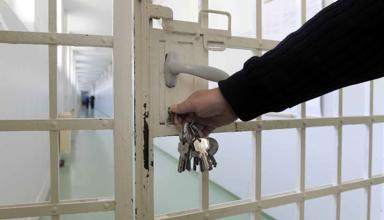The President of Welsh Tribunals has published his first annual report since he was appointed in 2023, highlighting issues including the resources available to the Tribunals and a lack of access to training opportunities.
This article looks at some of the key matters highlighted in the report and what the President told the Legislation, Justice and Constitution (LJC) Committee in an evidence session on 14 October.
What are the Welsh Tribunals and who is the President?
The Welsh Tribunals are the only judicial bodies administered by the Welsh Government. A tribunal is a body that settles disputes, often following the decision of a public body. There are currently six Welsh Tribunals that cover areas such as mental health, education and agriculture.
The Wales Act 2017 created the role of the President of Welsh Tribunals. Sir Gary Hickinbottom was appointed in 2023. The President has a supervisory role over all the Welsh Tribunals. Each tribunal also has its own judicial lead and members. The tribunals have a range of different responsibilities. Together, they deal with about 2,000 applications every year.
More information about the Welsh Tribunals can be found in this Senedd Research article.
The Tribunals don’t have the resources they need
The Welsh Tribunals have exceeded their allocated budget for the last two years (2022-23 and 2023-24). The President’s annual report says this is due to increases in fee rates and pension costs resulting from inflation, as well as an increase in fee-paid judicial time, recruitment costs and a return to face-to-face hearings.
The LJC Committee asked the President about this overspend and what steps he is taking to address it.
The President said he was engaging with the Welsh Government about budgeting and expenditure, and stressed the importance of ensuring that the Tribunals are properly accountable to the Welsh people. He suggested that the reforms proposed by the Welsh Government would make this easier because they would set up an executive body, independent of government, to run the Tribunals that would be “far more transparent and accountable than things are now”. These reforms are discussed later in this article.
When asked whether he believed the Welsh Tribunals had the resources they need to ensure cases are disposed of speedily, efficiently and justly, the President said “no, because I think there’s this disparity between budget and actual expenditure”.
Challenges in competing with courts and non-devolved tribunals
One of the key challenges raised in the annual report is the fee rate that is paid to members of the Welsh Tribunals, compared to those serving in the courts and tribunals that are not devolved. The report says it is “vital” that fee rates are comparable with these other bodies.
Whilst these fee rates had previously been aligned, the former First Minister only agreed to 5% rise from 1 April 2023, compared to the 7% that the Lord Chancellor had agreed for office holders in courts and non-devolved tribunals. The President warned that this disparity could lead to members choosing to sit in other courts and tribunals rather than the lower paid devolved tribunals.
The President told the LJC Committee that the Welsh Government has now agreed to a new pay award for 2024-25 that matches that set by the Lord Chancellor, plus two per cent to make up for the discrepancy in the previous year.
However, this isn’t the only challenge facing the recruitment of members of the Tribunals. In both his annual report and in evidence to the Committee, the President noted the disparity that exists in non-fee rate related issues, like working practices. This includes pay for non-sitting days, preparation and writing up time, and for cancellations. The President said this disparity favours the courts and non-devolved tribunals.
A lack of access to training courses
The Committee also asked the President about whether members of the Welsh Tribunals have access to the training and support they need.
The President said that while the Judicial College (which provides training for the judiciary in England and Wales) does allow members of the Welsh Tribunals to access their materials and attend training sessions if there are spare places, the College only fully serves the courts and non-devolved tribunals.
He added that training Welsh Tribunals members without “our own equivalent of a Judicial College” was a “real issue”. The President said that he would:
...have another go at trying to persuade those who need persuading that the Judicial College should extend their scope to cover devolved tribunals.
Cymraeg: access to justice?
The President’s annual report showed that the number of tribunal hearings held in the Welsh language has remained low over the last four years. The report acknowledges that this is consistent with the position of other courts and tribunals in Wales, and that there is a substantial difference between the use of the Welsh language in everyday life and its use in the justice system.
In his evidence to the LJC Committee, the President acknowledged that this could have an adverse impact on access to justice for those “individuals who would best present their case...in the Welsh language, or largely in the Welsh language”.
In order to help understand the reasons why applicants are choosing not to conduct hearings in Welsh, even if it may be their first language, the Tribunals will be asking a new question in their application form. The question asks the reasons why people who indicate that they speak Welsh choose to have the hearing held in English.
The President confirmed to the Committee that the Tribunals have the resources in terms of staff and judicial office holders to “enable those who want to speak Welsh, either administratively or in hearings, to do so”.
Reform ahead?
The Welsh Government has outlined its plans to reform the Welsh Tribunals by creating a single First-Tier Tribunal divided into chambers, and an Appeal Tribunal for Wales. This would combine all the current Welsh Tribunals and help to create greater consistency in their rules and procedures.
The President outlined his support for the proposals in the evidence session, saying that they will give “a lot more coherence” to the Tribunals and that it is important that they go through both for the Tribunals themselves and for Tribunal users.
The Counsel General and Minister for Delivery, Julie James MS, recently told the Senedd that she was not able to say exactly when a Bill may be introduced to reform the Welsh Tribunals but that she hoped the Welsh Government could provide some certainty about the timetabling for the Bill early next year.
Article by Josh Hayman, Senedd Research, Welsh Parliament






